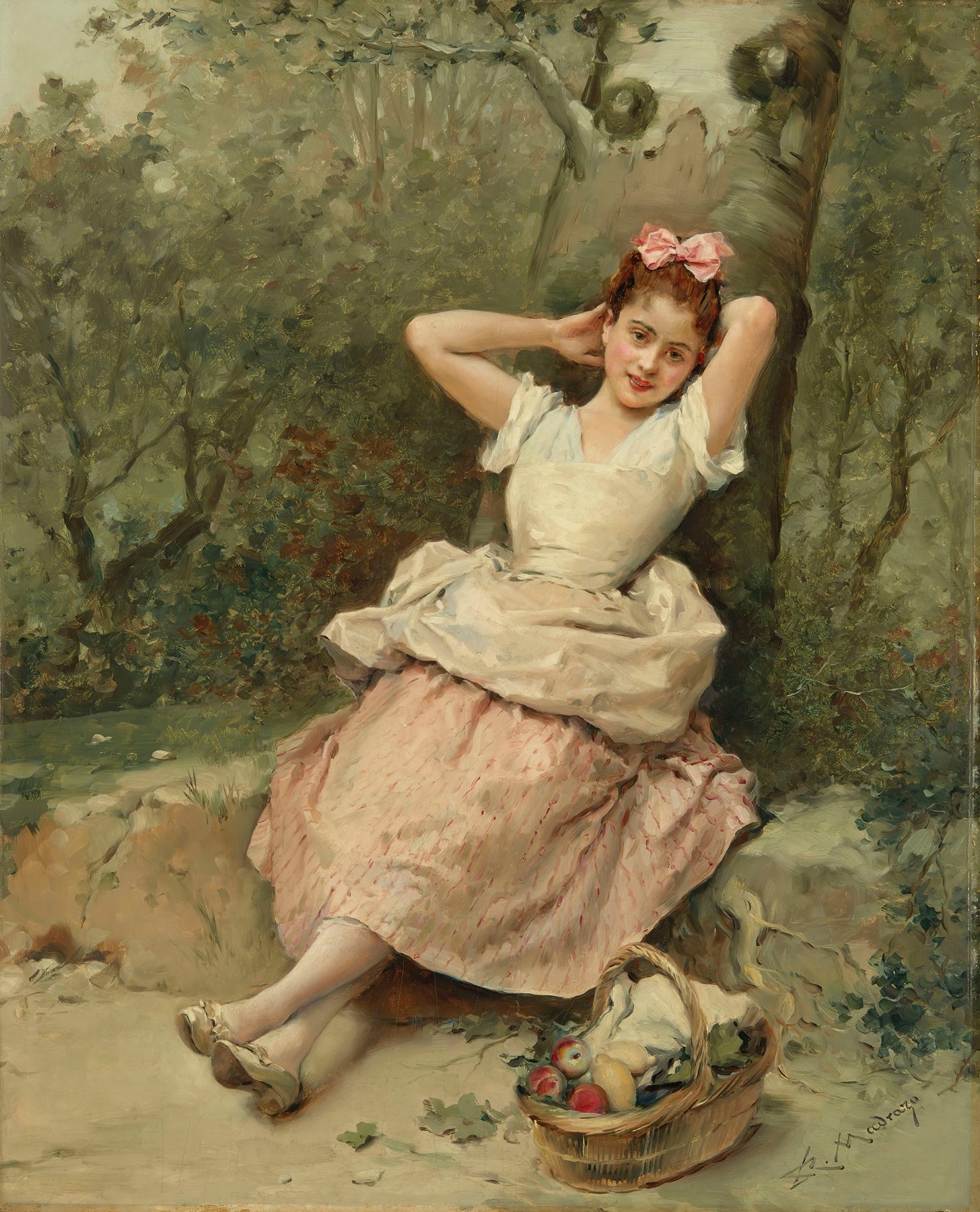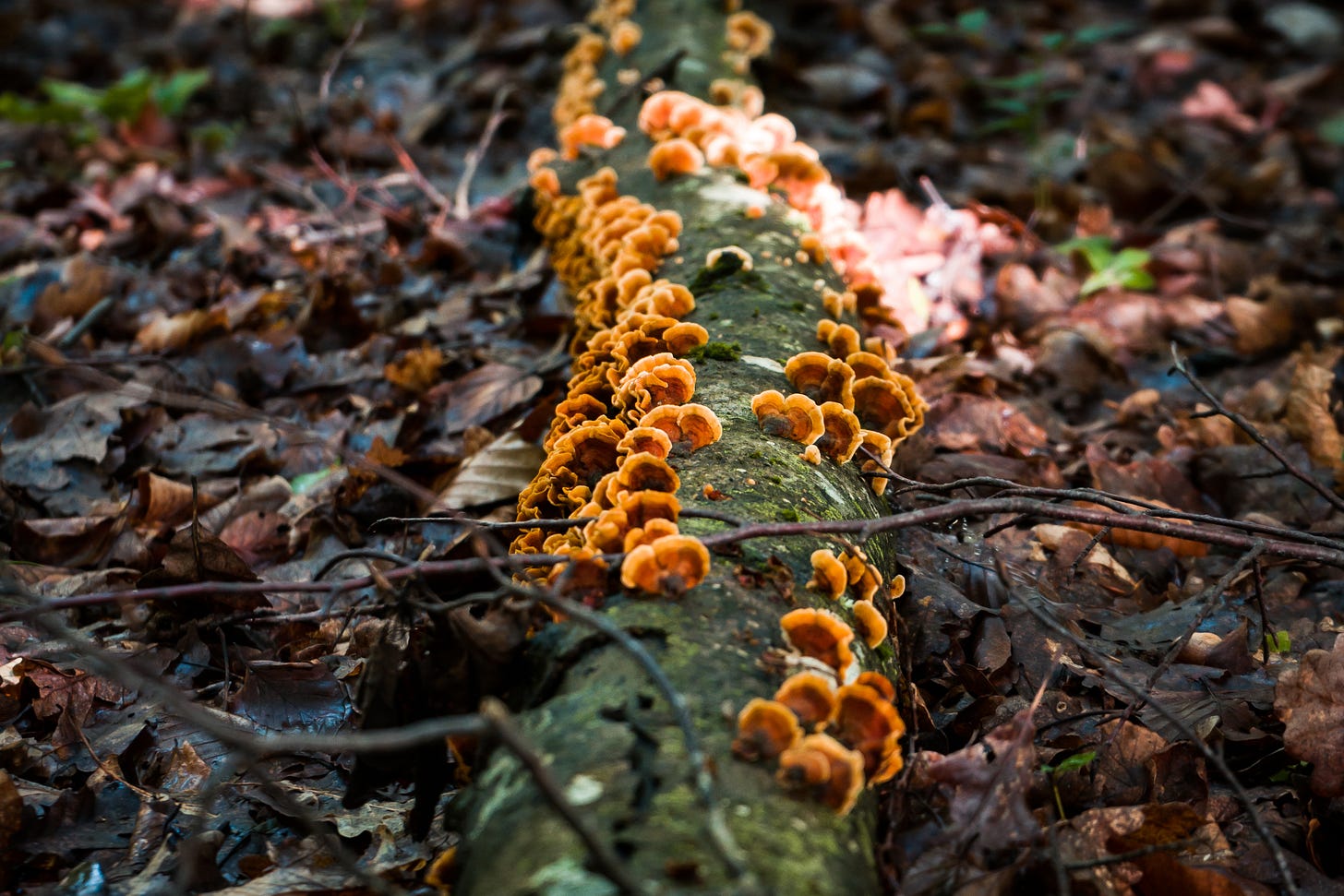“Tell me, what is it you plan to do with your one wild and precious life?” —Mary Oliver
I once met a man who asked me if I knew that quote. He told me a story about how he had encountered a signpost with those words, which became the mantra that drove his life.
People like that quote. It’s been displayed on refrigerator magnets and framed wall displays. You can even buy placards of it on Etsy.
Maybe I’m not much for sentimentality, but I’ve never liked that quote. The mantra that drives my life is just the opposite: “All I am is just a person.” This is what I often tell myself as I daily navigate this world’s heavy expectations. I regularly sift through expectations to climb to the top of my career, to slim down for greater attractivity, to remember to take my vitamins, and to augment the poisoned world I inherited by reading ingredient labels, recognizing the crackjaw names of toxic ingredients, and putting the items back.
Okay, okay, I could be taking the quote out of context. I probably am because I actually really like Mary Oliver. Still, this oft-quoted line has always made me feel put upon—like I have to go and do this grand thing. And if I don’t, then I’ve wasted my one shot at life. I don’t want to “do” any more than I already am. I’m completely overwhelmed with life expectations; plus, the laundry needs washing, the kitchen must be cleared, and the litter box needs freshening. I just want to be in the woods, doing nothing at all with my stupid, wild, and precious life. But I don’t have the blasted time! I dissent, Mary. I do not like your quote, and I will not be inspired by it. So there!
Driving in the Wrong Direction
When I was in my early 20s, The Purpose Driven Life was circulating in Christian circles. I read it, but I really can’t remember what I learned from it. All I know is that it compelled me to write down what I supposed were my gifts. Those old journals show me fretting about what to do with my life. Never in my young adulthood was I mentored by an elder about who I was going to be with this wild and precious life. That remained unconsidered.
Like many young adults, I took a meandering path to a career, changing my university major a total of four times. If an adult steered me in one direction or another, it was only because various job markets were either under- or over-saturated. I was never told: “Don’t do that. It will ruin your character.”
I once considered someone’s suggestion to get a public relations job, working for marine construction or freight companies. “What would that job be?” I asked. I was told that it might be helping to manage catastrophes like oil spills or train derailments. I could use my communication skills to talk to the media, strategically maintaining the company's reputation while the disaster was solved. I mulled over this advice until sharing it with one of my community college classmates, who responded, “It sounds so… ghastly.” Oh. True. I guess I hadn't thought about that.
Let’s say I wanted to be a banker, prioritizing money over absolutely everything. Or an oil executive reaping oil from underground and dispersing it as fumes into the air. Or, a scientist developing GMO seeds, patenting life and profiting from a system that traps farmers in crippling debt. Would anybody have stopped me? Would anybody have said, “Imagine what kind of person you will become if you do that.” Would anyone have commented about how ghastly the effects of various careers might be for the God’s good earth?
I’ve been asked numerous times, “So, what do you do?” Sometimes, I want to give a contrarian answer like, “I drink boxed wine and watch a lot of reality TV.” (Even though I don’t). The truth is, I generally find most conversations about careers dull. Asking what someone does to afford housing and a car rarely leads to a stimulating conversation revealing the essence of a person. In my experience, most people are not truly passionate about how they earn money. People are passionate about their spouses, homes, children, or hobbies. These things don’t pay money. They might even cost money. It’s curious that we chit and chat about the topic of careers when most people are enlivened by their relationships and hobbies.
In our frenzied modern world, we emphasize the doing (usually in relation to careers). When young adults are trying to figure out their lives, the question is never, who will you be? Rather, the question is, what will you do? We seem to think of ourselves as human doings and not human beings.
The older I get, the more I get the funny feeling that something more is going on. Maybe we don’t do what we think we are doing. Could it be that there is a guiding force behind it all, and what we think is happening isn’t the point at all?
Scattering Seeds
The Holy Spirit works in unknown ways; as St. Mark says, “So is the kingdom of God as if a man should cast seed into the earth and should sleep and rise night and day and the seed should spring and grow up whilst he knoweth not” (4:26-27). All we mere mortals do is sprinkle seed upon the earth. The Holy Spirit does the rest, bringing the rain and sunlight to those seeds that sprout into herbaceous life, juicy grapes, delectable berries, hearty squash, or even a towering sequoia.
During a recent dinner with some friends, we discussed how we came to live in our rural community and how we get by living out here. It’s not an urban environment where it’s easier to have your choice of “career.” My friend explained how he had been studying to become a professor of Biblical Studies, but now he is a plumber. He admitted he doesn’t necessarily love the work of plumbing. It’s a job that needs to be done. It pays the bills but hurts the back. What he does enjoy is that his work gives him access to people’s homes and, therefore, to their lives. And because of that, he has had an impact. He shared stories of deep, genuine conversations—the kind that life is actually about. He fixed a sink for a client about to go into hospice, and they quickly formed a meaningful bond. He has prayed with his clients and witnessed their tear-stained faces. This man is not a priest or a therapist. He is a plumber.
I believe our lives are less about what we do and more about who and where we are placed. It seems that God deploys us where His mysterious work can occur, and that’s actually our purpose—a purpose lived out through spiritual gifts we may not even recognize.
I have this sneaky sensation that we’re placed on a path to permit our light to shine. There is a renewing force at play beyond us. Our mere presence can be healing just by being.
Unintended Effects
I've heard it said that our lives are actually not about us. They’re about something much bigger. We are not the main characters; we are the supporting characters.
Recently, an older friend pondered, “Funny how you don’t know the effect you have on people.” I asked him what he meant. He had been to his 50-year high school reunion, where a former classmate told him that he had really helped her in high school. He was totally surprised! This man was not an academic superstar. Instead, he focused on playing football, joking around, and seeking people to accompany him when skipping class. But apparently, he inadvertently helped this girl by playfully calling her “smartypants” and commenting on how smart she was. The funny thing about this teasing is that her grades didn’t come easily. She worked twice as hard as everyone else, struggling to get passing grades. My friend’s bantering had encouraged her and given her confidence. For 50 years, he had no idea that he had lightened her yoke.
Every now and again, a person can say something to you in passing that has a deep effect. I once worked with a young man whose name I can no longer recall. One day, I told him about a wealthy friend of mine who traveled the world while her parents paid for her university and filled her closet with stylish clothes. She didn’t have to work her way through college. Meanwhile, I was toiling at a bakery for minimum wage, and it just didn’t seem fair. Then this coworker asked, “Yeah, but would you really want to be her?” “No! Of course not!” I retorted. I knew immediately that even though she seemed to have an easy life, I would never trade my life experience and learning, nor my friends and family, to live her (seemingly easier) life. I doubt this young man realized how profound his passing question was. He made me thankful to be my own self, and not some other self.
A few years ago, my husband and I were planning to enter into a land share with someone I shall call Bert. We bought a yurt and got to work. We cleared the land, felled some trees, chopped those trees into firewood, and milled floorboards for the yurt platform. Then, out of the blue, Bert abruptly asked us to leave. We attempted to discuss the matter, but his mind could not be changed. Confused, we complied, packing our yurt and dismantling the platform before we left. The whole experience seemed like a waste of time, money, and energy. Had we spent our summer in vain? Several months later, Bert left me a voicemail saying he regretted asking us to leave and he was sorry. I wonder if we were unknowingly deployed on a mission to Bert. Maybe one of us had shined a light that he needed to see. Or made a passing comment that shifted something. Perhaps we healed something in him. I don’t know. All I know is that experience had absolutely no payoff for either me or my husband. Yet, my sense is that the Holy Spirit guided us to this situation for reasons that are ultimately for the healing of Creation but not necessarily that are for our individuated benefit.
In this fine and beautiful design, our purpose and gifts are often an enigma, even to us. Instead of gaining knowledge of our purpose, we are left with having to trust our good and gracious God in faith because His ways and thoughts are beyond us. As Isaiah 55:8-9 says, “For my thoughts are not your thoughts, neither are your ways my ways, saith the Lord. For as the heavens are higher than the earth, so are my ways higher than your ways, and my thoughts than your thoughts.”
Another Purpose
I had an acquaintance who died tragically at 48, leaving behind several tween children. Her untimely death left many hearts shattered. In grief, a friend said that Christine’s death didn’t make sense because "Her work wasn’t done yet." My friend was referring to how Christine’s kids were now bereft of their earthly mother. Later, as I reflected on this comment, I concluded that Christine's work must be done. If her work was unfinished, she would still have life in a human body. Instead, she was absorbed through death into God’s timeless heavenly bliss. While Christine's work was to mother, and she did that exceedingly well, what was her actual work? Was there another purpose she was living out that we mere mortals don’t comprehend? I believe so. The Holy Spirit works undetected in unseen places, just like the hidden seed secretly growing underground that will one day burst through the soil, arching heavenwards and praising God just by being a sprout.
In my young adulthood, I sure put a lot of thought into wondering what my gifts were supposed to be. I felt like I didn’t really have any gifts. Now I know I do, in fact, have gifts; I just don’t really know what they are.
We are living out our divine purpose, affecting the life around us in ways unaware to us. That is the magic and mystery of the Holy Spirit—invisibly reverberating in our souls and out into this world—changing us and changing others. Or, as Buckminster Fuller said,
“We're like bees, you see, bees that go out looking for honey without realizing we're performing cross pollination.”
Some months back, my husband and I were in the forest. As we tromped across a ravine, a flock of songbirds suddenly emitted a cacophony of chirps. My husband said, "The birds are chirping because of us. They're not just chirping for no reason. We are the reason for all this noise since we have suddenly entered their space." We, too, are a significant part of His creation and divine nature. The birds take note, chirping their own melodious notes. How often has my mere passing presence affected something? I suspect it’s much more common than I realize.
St. Matthew says, “Look at the birds of the air; they do not sow or reap or store away in barns, and yet your heavenly Father feeds them. Are you not much more valuable than they?” (6:26). I was enchanted by the birds of the air greeting me as the quiet susurrus of the Holy Spirit moved through the thicket. I’m honored they would take note of me simply for my mere presence. The Psalmist enchantingly says: “You, Lord, preserve both people and animals. How priceless is your unfailing love, O God!” (36:6-7). In the panoply of Creation, we are all treasures from Creation and to Creation, each with our own unknown and unique gifts. These gifts shine in us, through us, and out of us in ways we don’t know, affecting the life surrounding us. Zephaniah 3:17 says, “The Lord thy God in the midst of thee is mighty; he will save, he will rejoice over thee with joy; he will rest in his love, he will joy over thee with singing.” We can believe that we are a gift to this beautiful, and sadly suffering world. Like the goldfinches, geese, and mimosa trees, humans (when living rightly) also beautify the earth. Life is honored by our presence, just as we are honored by the life encircling us. The Holy Spirit of healing rejoices over us all with joy and singing.
Once, I was participating in qigong, a Chinese calisthenics practice that involves a lot of shaking of the body. (From experience, I will say it really does help release angst.) We were shaking and jumping on a grassy patch. As I pounded upon the earth, a worm poked its head out right below me. I bet it wondered what the source of the quaking earth was. My presence certainly affected that earthworm—changing how its day was going.
American mycologist Paul Stamets explains that drumming creates long wave sounds absorbed into underground mycelial networks; these networks are akin to strings on a guitar that reverberate what is around them. This resonance causes these networks to grow. When mycelial networks grow, they add more nutrients to the ecosystem, causing the plants to arch sunwards and the trees to fruit more abundantly. He believes that the mycelium acknowledges the presence of drumming and dancing and responds by growth. Again, it seems as if we are an integral part of this mysterious world.
We are where we are supposed to be right now. God has deployed us where our gifts are most needed. For we are a part of God’s majestic quaking, inspiring and expiring Creation, affecting the life around us in ways we are unaware of. We may unwittingly encourage a classmate by teasing them, comfort clients as a priestly plumber, or even cause the birds to sing, the earthworms to emerge, the mycelium to expand, and the trees to fruit.
When someone asks me, “So, what do you do?” The most accurate answer is, “I don’t exactly know.” In this wild and precious life, the Holy Spirit does the doing. We do the being. That’s why we are human beings.
May our presence and our spirit shift the life we encounter towards the rejuvenating Light of Christ. Let us praise God by being who He intended us to be, trusting that He has deployed us where our gifts are most needed. May we be like bees, gathering sweet nectar as the mystifying Holy Spirit cross-pollinates Creation enlivening all members and magnifying God’s glory.
Divine Nature is intended to heal, inspire, and cultivate hope—thus, it is given freely.
Essays are published about every six weeks, or less. Please subscribe knowing your inbox will not be inundated.










So beautifully put and very true.
Hmmm - a child asked me today, where have you been? Knowing his family's trip abroad was on his mind, I had to reply - how do you mean? I should give the same consideration to adults who ask, what do you do? And perhaps answering, "I'll start finding out at my death - won't that be fascinating? I can hardly wait!"